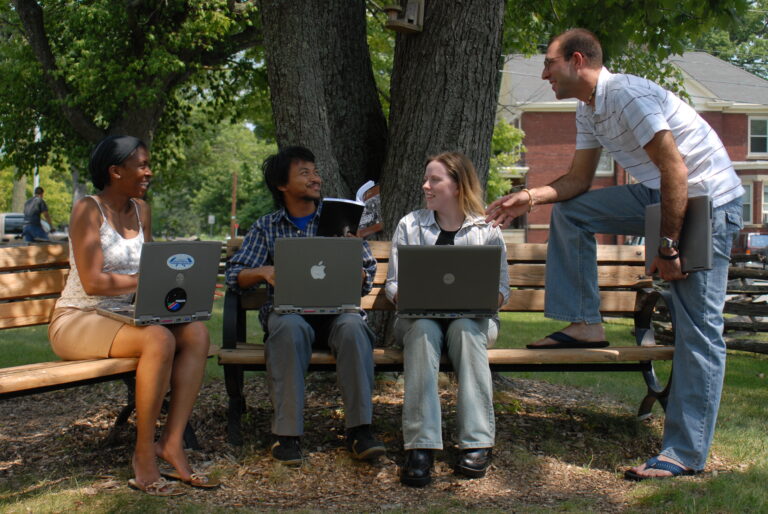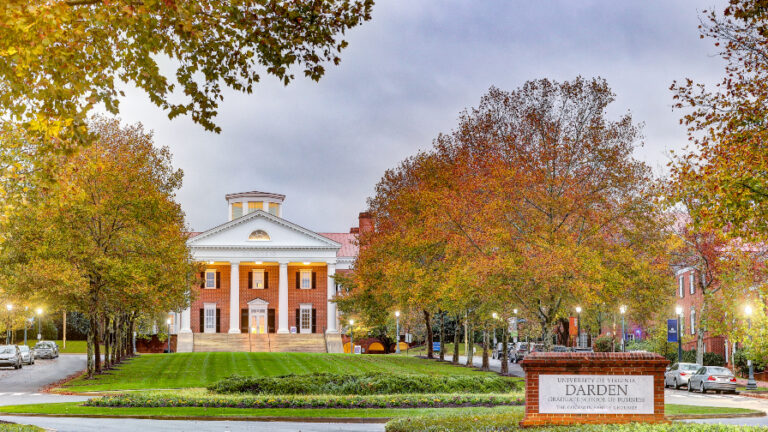US Business Schools Combat Anti-Asian Racism
Business schools in the US take a stand against anti-Asian hate and reiterate their commitment to maintaining diversity in the candidate pipeline
The COVID-19 pandemic has exacerbated xenophobia towards Asian communities, spreading anti-Asian racism. Business schools in the US, global institutions with thousands of Chinese applicants for MBA and MA courses each year, have been dedicated to maintaining a diverse and inclusive pool of students.
The Graduate Management Admission Council (GMAC) issued a statement on behalf of the business schools to inform that the school stands in solidarity against anti-Asian sentiment.

The statement says, “We are greatly saddened and disturbed to know that people of Asian heritage are reporting experiencing acts of discrimination and violence. The uptick in crimes, racist acts, and bullying against individuals of Asian heritage, Asian Americans, and Pacific Islanders cannot stand. We are committed to creating opportunities for more students to pursue their dreams of attaining an MBA or business master’s degree—and to do so in a safe and welcoming environment”.
US business schools strive to brace for Covid-fueled racism
Since the Covid-19 virus was first reported in China in 2019, the spate of racially motivated incidents, such as the Atlanta spa shooting in March 2021, has been continually happening. In this climate, U.S. MBAs, having increased students both home and overseas during the pandemic, have witnessed the alarming rise of anti-Asian sentiment within the institutions. Business schools are therefore committed to taking action to show their solidarity with students of Asian heritage.
Matthew Slaughter, dean of Dartmouth’s Tuck School of Business, condemns racism in an official letter that increased racial harassment. Slaughter also encourages Asian students suffering from escalated racial abuse to speak with the school’s advisory teams or, for immediate help, to use the LiveSafe app, a Dartmouth-specific safety smartphone app.
NYU Stern business school in New York also encourages students who witnessed an incident of racism to tell them using NYU’s ‘Bias Response Line. Also, a virtual discussion organized by NYU Stern’s ‘Asian Business Society’ (ABS) is taking place to discuss the ongoing events with the Stern community.
In April of 2020, on the other hand, the University of Pennsylvania established the ‘Task Force on Support to Asian and Asian-American Students and Scholars (TAASS) to coordinate support to members of its community. It hosts a series of conversations supporting its students who experienced escalated stigma during the pandemic.
Similarly, Duke University’s Fuqua School of Business has made steps to protect its members. The open conversation, ‘Daring Dialogue’, is coming up in which speakers share their personal accounts of surging racism. The school also opened ‘the Office of Community Engagement and Inclusion’ and this office has held ‘Restorative Circles on Anti-Asian/Asian American hate and xenophobia’. Meanwhile, within the school, student communities are also doing their part; for instance, organizing a socially-distanced vigil to show their solidarity.

Stephanie Robertson, assistant dean of community engagement and inclusion, and Rick Larrick, associate dean of diversity, equity, and inclusion at Fuqua, say “We feel these types of interactions are important to not only help those experiencing discrimination to process and hopefully begin to heal but to also give the rest of our community a chance to understand and learn from others’ experiences”.
Following the Atlanta shootings, Xibei (Carol) Zhang, president of the Asian Business Club at UNC Kenan-Flagler Business School, circulated a list of useful resources for supporting Asian students’ mental health. The UNC Kenan-Flagler wellness teams have also operated virtual drop-ins for students suffering from race-based discrimination.
Carol, from Harbin in China, says “Most of us did not anticipate the kind of verbal and physical violent attacks that have been occurring over the last year and many of us are worried about our own safety and personal security”. She adds that Asian students coming from more homogenous societies find it more frustrating to experience and witness a racist climate, saying “We feel stressed about finding ourselves in the wrong place at the wrong time simply by going to a supermarket or shopping mall”.
Building a better check-in with Asian students can improve the situation, says Mark W. Nelson, Anne and Elmer Lindseth dean and professor of Accounting at Cornell University’s Samuel Curtis Johnson Graduate School of Management. Nelson notes “To the Johnson Asian, Asian American, and Pacific Islander (AAPI) community, we are here for you if you need anything”. For example, Cornell has organized virtual gatherings to talk with their students about their stories related to anti-Asian sentiment, and ‘the Asia Business Association’ initiated a ‘Call-To-Action Plan for the Johnson community.
What is the impact of the Anti-Asian hate on candidates?
Despite the surge of anti-Asian hate in the US, leading MBA admissions consultants claim that the applications from Asian ethnicities have not decreased.

Barbara Coward says that Asian-targeted racism may be appalling to some Asian candidates. However, she has not noted any case with prospective students withdrawing their application. She considers it is due to the ongoing popularity of MBA courses in the US, saying “There is such a strong desire to get an MBA from a prestigious university in the United States that it seems outweighs any anxiety”.
Scott Edinburgh, of Personal MBA Coach, mentions that Asian and Asian American students remain as one of the minority groups across MBA campuses. Pascal Michels, of Menlo Coaching, also reports that Asian candidates still perceive top business schools in the US as welcoming and supportive communities.
In the Harvard Business School MBA class in 2022, 13 percent of students came from Asia, following the largest ratio of domestic peers, and in Wharton’s class in the same year, 24 percent of the US students were Asian American.
Carol urges Asian applicants not to give up studying in the US business schools because of Covid-related racism, saying “I know I must be vigilant about my safety, but the chance to study in the US remains a remarkable opportunity”.
Read more: Female Students Are Supported by Business Schools







